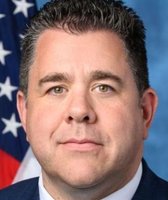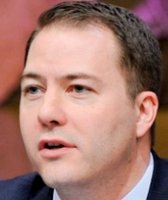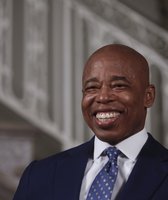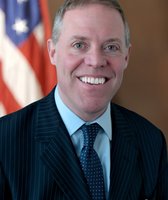Stand up for the facts!
Our only agenda is to publish the truth so you can be an informed participant in democracy.
We need your help.
I would like to contribute
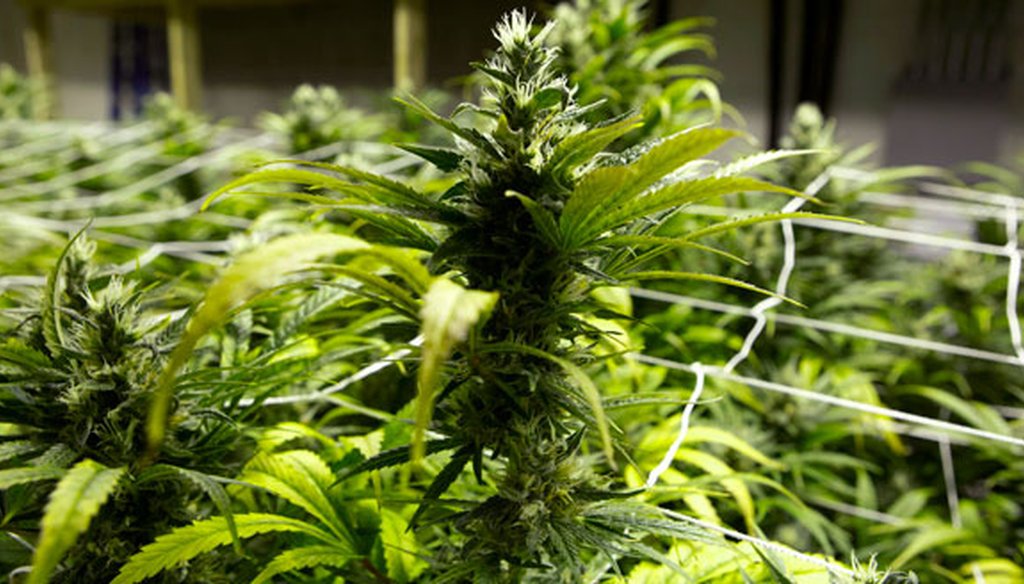
Marijuana plants being cultivated. (AP photo)
If Your Time is short
- New York is one of four states that does not ban public consumption of marijuana.
- Employers can take action against employees who are impaired by marijuana at work.
- Consuming marijuana in cars that are parked or in motion is illegal in New York.
It seems wherever you go, it is becoming hard to avoid the smell of marijuana, according to one state lawmaker.
State Sen. George Borrello, R-Sunset Bay, has introduced legislation to prohibit marijuana use in public unless a municipality allows it, a measure he says would make New York more like other states that have legalized recreational adult-use cannabis.
"We do not allow people to walk down the street chugging a bottle of vodka and the intoxication that results," Borrello said. "We need the same type of restraints on marijuana."
During a recent interview on WBEN-AM in Buffalo, Borrello made several claims about New York’s marijuana law and how it compares with those in other states.
We fact-checked four of these claims, and here’s what we found:
Twenty-three states and the District of Columbia have legalized recreational marijuana for adults age 21 and older, and the overwhelming majority of them have explicitly banned public consumption.
So, Borrello is accurate on this claim. Four states, including New York, have not banned public consumption. Although there are some public places in New York where it is illegal to consume marijuana, the state’s law does not have a blanket ban on public consumption like those in many other states.
Other states without blanket bans: Minnesota, where legalization took effect after Borrello’s interview, Rhode Island and Connecticut. These states generally regulate public consumption as they do tobacco, and leave some rules up to municipalities. Connecticut also bans it in state parks and state beaches.
One reason for the less restrictive public consumption rules in New York is that people whose consumption has been over-policed in the past – the low-income residents in minority-majority neighborhoods – cannot consume marijuana in subsidized housing. So they must do so outside, said Jeffrey Hoffman, a pro-legalization cannabis lawyer based in New York City.
It is more permissive than other states, "as well it should be," Hoffman said.
Borrello is right. Marijuana is indeed more potent than it used to be, with the highest concentrations of THC, the main psychoactive ingredient, found in concentrated cannabis products. PolitiFact fact-checked a claim that marijuana is stronger than it used to be, and found it True. The potency of marijuana has increased from 4% THC in 1995 to 17% in 2017, and at one dispensary in California, a strain of cannabis that could be smoked had 41% THC, according to reporting by KFF Health News, a nonprofit news organization. But the products with the highest concentrations of THC aren’t smoked in a joint. Other concentrated marijuana products, such as hash oil or wax, have THC concentrations exceeding 90%.
This is not accurate.
Borrello was asked during the interview whether there are any restrictions when it comes to recreational marijuana consumption.
"None whatsoever, let me be very clear about that," he said. "Marijuana is more consumed not by smoking but by edibles and vaping than by smoking. There are zero restrictions, zero restrictions. The only restriction that is in place is you can’t smoke it where smoking is not allowed, but that is a very difficult thing to enforce as well."
In New York, marijuana cannot be consumed in motor vehicles, in private businesses, including cigar or hookah bars, or in any place where smoking cigarettes is prohibited, such as restaurant patios and public parks. The law allows for cannabis lounges, but they have not yet been licensed. As it is in any state, smoking on federal land is prohibited.
When asked about this claim, Borrello said that although consumption is technically not permitted in automobiles and private businesses, practically speaking, it’s impossible to stop people from consuming marijuana edibles and gummies anywhere they want.
Even smoking in cars is more prevalent since legalization, he said, citing reporting in The New York Times.
"People are not obeying the law and the ban is rarely being enforced," he said.
We recognize that in political rhetoric, there is room for hyperbole; we don’t check opinions or obvious exaggerations used for emphasis. But it should be noted this claim is not accurate. New York laws explicitly prohibit consuming marijuana in vehicles — moving or parked. It is also illegal to drive under the influence of cannabis.
Employers’ ability to take disciplinary action against workers who get high before or during work hours vary with the circumstance. Employers can take action against employees who use cannabis during work hours, including mealtimes, breaks, and on-call time. They can also take action against employees who use an employer’s property to consume marijuana, and can prohibit employees from bringing marijuana to work.
Under state law, employers can also take action if employees are impaired because of marijuana use while they are working, even if the employer doesn’t have a policy prohibiting using marijuana. Impairment is a decrease in a worker’s job performance or interference with an employer’s obligation to provide a safe and healthy workplace. However, employers cannot take action if they observe only signs of use, or smell it. The worker must be impaired for disciplinary action to be taken. A drug test is not sufficient proof that a worker is impaired.
Borello said that detecting when employees use edibles and other forms of marijuana is difficult.
"My point with that statement was that — in spite of the ‘prohibitions’ — the practical effect in New York’s poorly designed marijuana law has been to unleash a veritable ‘free-for-all’ mentality when it comes to pot use," he said.
Our Sources
Phone interview, Jeffrey Hoffman, cannabis lawyer, Aug. 17, 2023.
Email interview, New York state Sen. George Borrello, Aug. 17, 2023.
New York State Sen. George Borrello, news release, "Senator George Borrello Introduces Legislation to Prohibit the Public Use of Marijuana," July 20, 2023.
The New York Times, "Why It’s So Hard to Crack Down on Stoned Drivers in New York," May 20. 2023.
WBEN-AM, interview with state Sen. George Borrello, July 25, 2023.
NPR, "Highly Potent Weed Has Swept The Market, Raising Concerns About Health Risks," May 15, 2019.
The New York Times, "Psychosis, Addiction, Chronic Vomiting: As Weed Becomes More Potent, Teens Are Getting Sick," June 23, 2022.
USA Today, KFF Health News, "Legal pot is more potent than ever. And it's still largely unregulated, putting consumers at risk," May 7, 2023.
PoliitFact, "Yes, marijuana is stronger than it used to be," March 19, 2021.
Visit Rhode Island, "Cannabis in Rhode Island," undated.
The Associated Press, "What to know as recreational marijuana becomes legal in Minnesota in August," July 28, 2023.
WRGB Albany, "NYS to prohibit smoking in all state-owned parks, beaches, playgrounds," July 15, 2022.
New York State Office of Cannabis Management, Adult Use Information, undated.
New York State Department of Labor, "Adult Use Cannabis and the Workplace, New York Labor Law 201-D," October 8, 2021.
New York State Law, Chapter 7-A, Article 4, Adult Use Cannabis, SECTION 77, Adult-use on-site consumption license; provisions governing on-site consumption licenses.
NORML, state laws regarding adult use legalization.
CT.gov, Cannabis Information, July 1, 2021.










